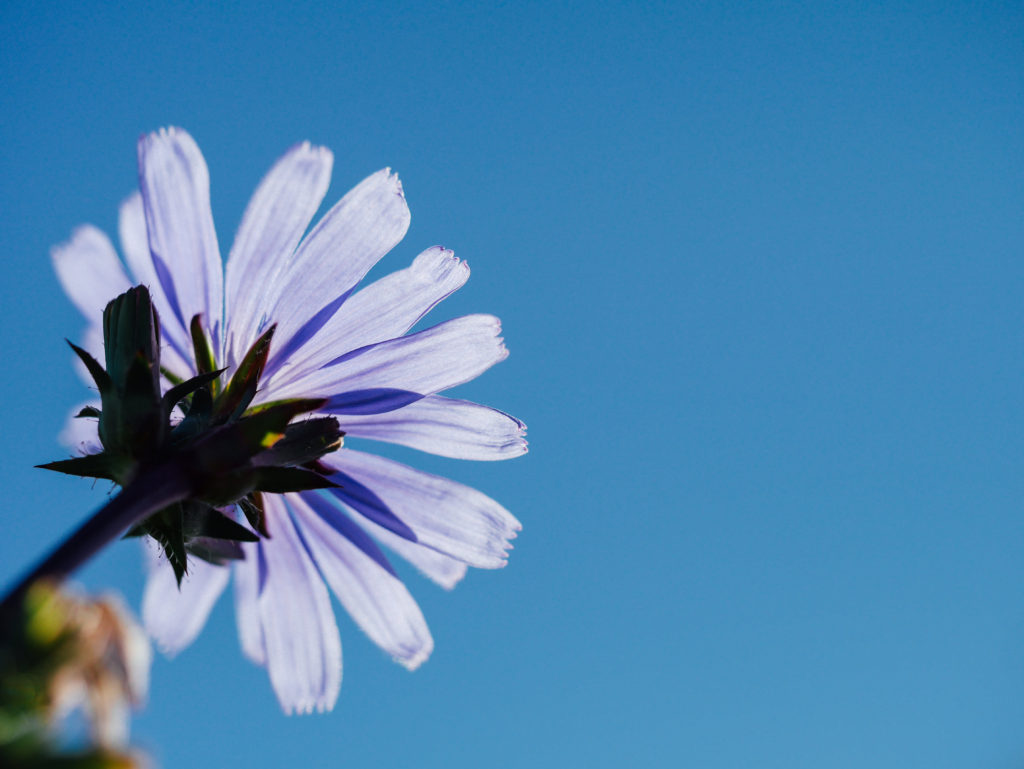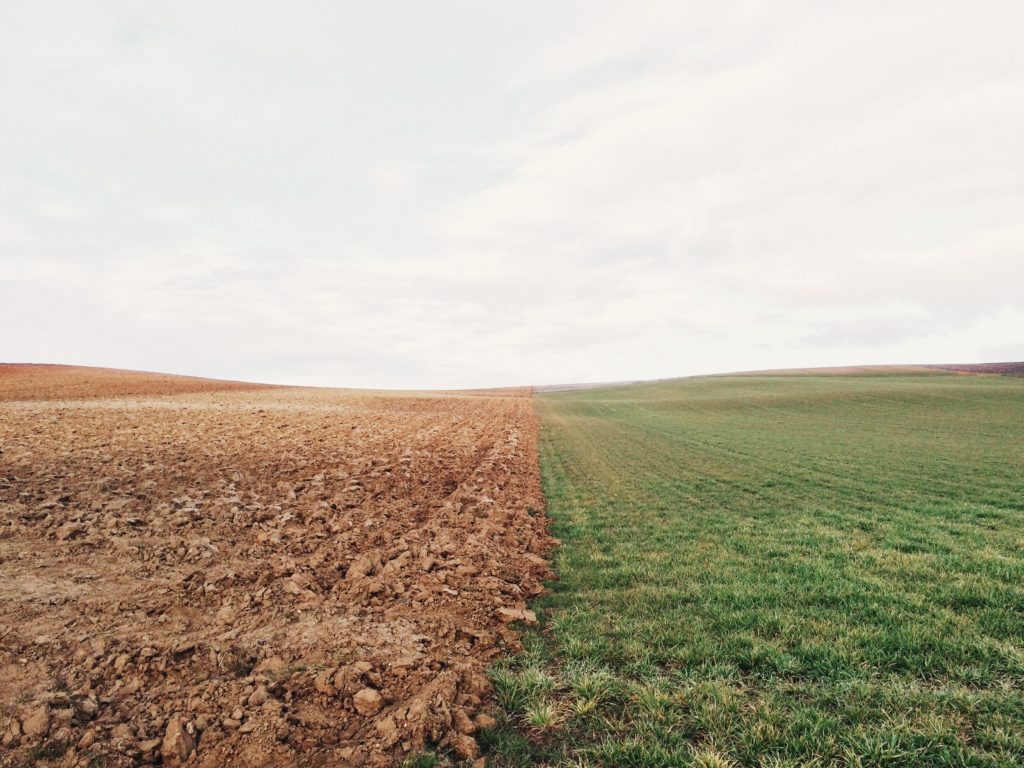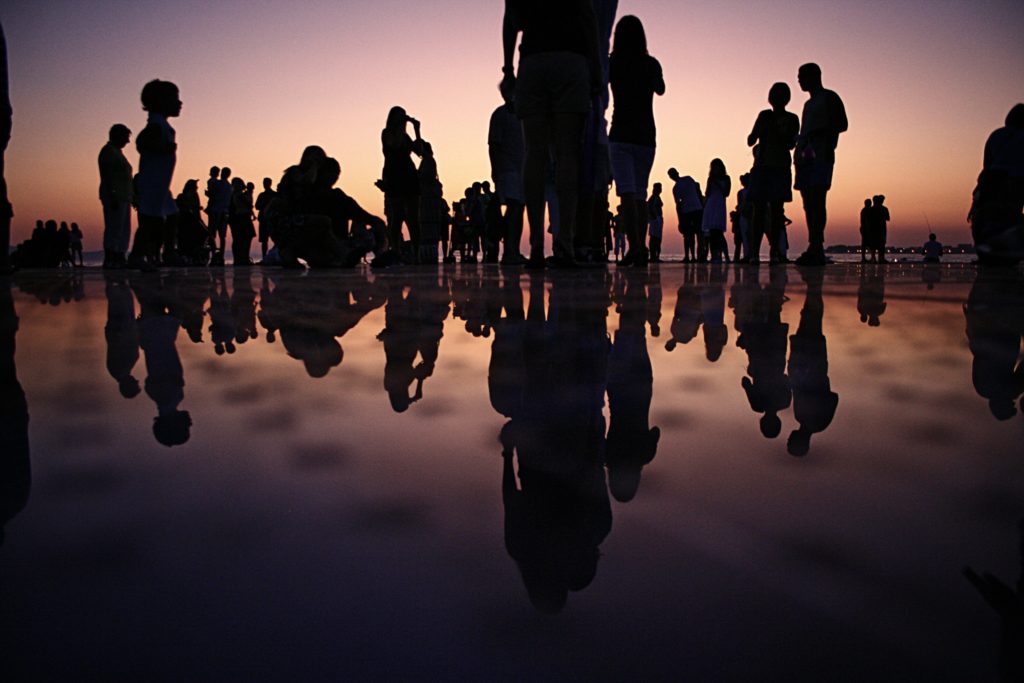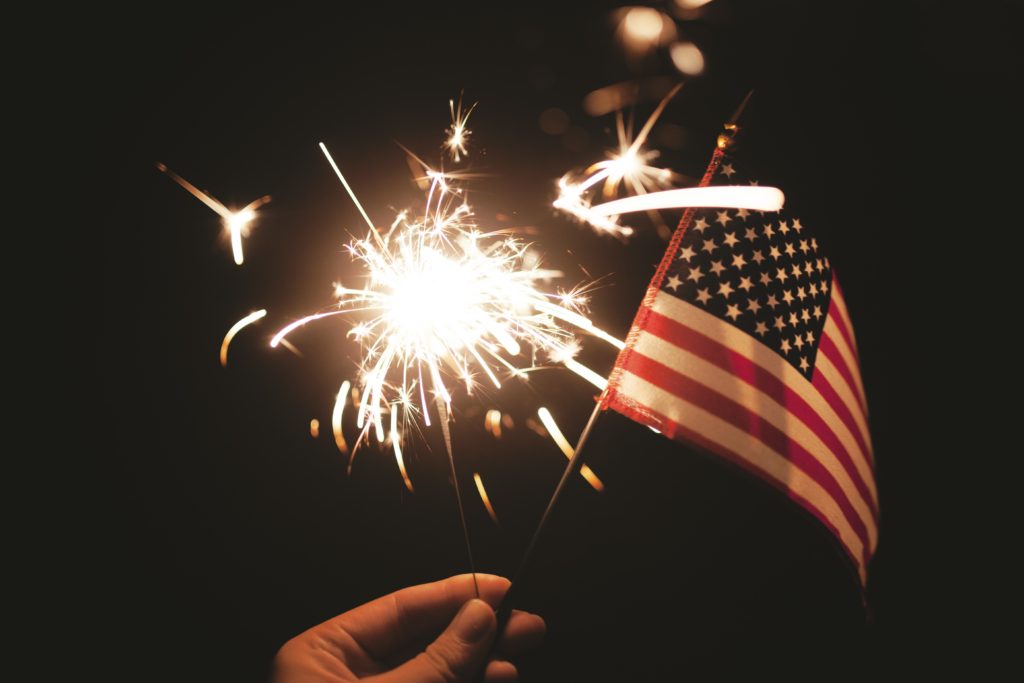I am an impatient person. Almost nothing happens fast enough for me. I want things yesterday. Wait for something? No thanks. This is an attitude supported by our society, in my opinion. There’s an underlying belief if something isn’t happening on our timeline we need to move on. I notice in myself and others we don’t want to wait – we want things to happen instantaneously.
I reflected on this during my meditation the other day and what bubbled up is, “What’s the rush?” What’s the rush indeed. Why am I in such a hurry to get where I’m going? Can I let things unfold naturally, and slowly?
My spiritual teacher says, “Suppose, immediately after planting some saplings and seeds, someone digs them up to find out if they have taken root or sprouted. That would not be considered wise.” He also says, “Each action has an equal and opposite reaction provided the three relative factors of time, space, and person remain unchanged. Whatever you do is an actional expression determined by your past actions. Your actions will certainly have reactions, but you may have to wait some time for their expression.”
Again with the waiting. We all know patience is a virtue and things get better with time, like wine and cheese, but I don’t consume either of those things so I don’t connect with that comparison. What helps me is I think of my mother. My mom graduated from medical school when she was 64. That in itself is inspiring, but particularly what I think of is how she opened her own medical practice. In the first year, she barely made anything, she hardly saw any patients. It would have been very easy for her to say, “Oh well, not happening fast enough, time to move on to the next thing.” Instead, she stuck with it. It’s been a couple of years, but she reached a point where she needs to hire someone a few hours a week to help out around her office. It didn’t happen quickly, but she’s finally seeing results.
That also reminds me of a podcast I listened to the other day on fear and creativity by Elizabeth Gilbert. One of her guests was comedian Michael Ian Black who said persistence is the most underrated quality a creative can have and talent is the most overrated. That concept stuck with me like a burr because it says to me if I persist, I can be successful. If I keep putting in the work, eventually it will bear fruit. The timeline is not up to me, but the work sure is.
I’m not saying stick with something if it makes a person miserable. But maybe we’re giving up on things too soon? Maybe if we had a little patience we’d see the results we’re after? There are no hard and fast rules on this unfortunately, but for me, erring on the patient side often seems more beneficial than the action side. Maybe that’s true for others as well.
I dream of a world where we are a little more patient to see results. A world where we’re a little more patient with ourselves and each other, understanding not everything can be hurried. A world where we ask ourselves, “What’s the rush?” and realize often there isn’t one.
Another world is not only possible, it’s probable.
I had an interesting experience this week. A friend posted this article about how family trauma can be inherited. I’d heard of the concept before, especially when epigenetics came to the scene, but I didn’t think the issues I’m addressing right now could be related. I thought epigenetics made me more prone to overreact to stress because my ancestors experienced stressful situations. Stuff like that. However, reading that article had me rethink some things.
One of the issues that’s plagued me for a long time is a fear I’ll be replaced, usurped, or forgotten. I attributed it to being a middle child, but this week I contemplated whether the issue was rooted in my ancestral lineage. Before World War II, both of my grandparents were married to other people and had families, all of whom were killed. By the time my grandparents married each other, in a way, their previous families were replaced, by the living.
My mother has shown me a family portrait taken before the war – a whole gaggle of people – and then she points to a few people and says, “These are the only ones who survived.” I have no idea who the rest of my relations are, I don’t know their names, or their stories. They have been forgotten. Even typing this right now I’m tearing up because I feel the grief around that, these lost family members.
I started meditating after reading the article about inherited family trauma, and I said to all of my ancestors, “I’m inviting you back into the family. I’m acknowledging you. You have a place. You are not forgotten and your role will not be usurped.” Afterward, I became frenzied and manic. Energy buzzed through me and hours later after I calmed down, I felt relief in way that I haven’t before. Instead of feeling insecure, worrying that I’ll be replaced by someone else, I felt an assurance that I am irreplaceable.
I am fascinated by the whole thing because so often I think of myself living in a vacuum – my issues started with me and that’s the end of it – but this experience has me thinking perhaps that’s not true. My spiritual teacher says we are affected by our environments and by external sources. Not just in the sense of, “It’s cold outside and that makes me cold,” but “I live with drug dealers so I’m more likely to deal drugs myself.” We all know this, don’t we? It makes complete sense, but it didn’t occur to me until the other day that the effects of someone else’s actions who I’ve never met, who I don’t know anything about, could be impacting me today. Not in terms of government policies, but personal traumas like being locked up in a mental institution or losing a child.
The good news is this stuff can be healed. Mark Wolynn, who wrote a book called It Didn’t Start With You, says:
“On a higher level, I believe these traumas are important, because they lead us on a hero’s journey. We enter the path through introspection, through looking at what’s uncomfortable, by being able to tolerate what’s uncomfortable, and then by journeying in to what’s uncomfortable and emerging on the other side in a more expansive place, using what was contracting us as the source of our expansion. Many of us don’t realize that the trauma we are born to heal is also the seed of our expansion.”
I dream of a world where we delve into what’s uncomfortable. A world where we understand our issues are not ours alone and may have a root in what happened to our ancestors. A world where we understand we all have carryovers from the past and we finally put the baggage down.
Another world is not only possible, it’s probable.
I’ve come to believe that to be alive means to experience trauma; and I don’t mean things like war, or car accidents (although those things too) — I mean things like death, divorce, and anything else that shakes us up and makes us feel unsafe physically or emotionally. Trauma can also be secondary, by the way. It can be hearing or seeing someone else’s traumatic experiences. When you take into account the majority of news stories, I’m pretty sure we’re all walking around a little traumatized.
We all deal with trauma in our own ways, but I’ve noticed I deal with trauma by minimizing it, dismissing it, or doing whatever I can to distract myself from the depths of my feelings. Who wants to feel sad or angry or insecure when there are movies to watch, people to call? Who wants to feel sad or angry or insecure when there are places to visit and dreams to chase? I certainly don’t. But the reality is, we can’t outrun our trauma; it clings to us like a shadow. Carl Jung said, “Until you make the unconscious conscious, it will direct your life and you’ll call it fate.”
Carl, why you gotta be so spot on? I don’t want to make the unconscious conscious, but I’ve reached a point in my life where I can’t ignore it anymore. As someone said to me once, “What you resist, persists.” I wanted to punch them in the face when they said that to me, but I found, yes, it’s true. I kept working so hard to resist, but my resistance didn’t banish the problem, it only served to keep it alive. The question then becomes, how is a professional emotional runner, so to speak, supposed to all of a sudden stop running? How can a person face their demons instead?
When I brought this up to my therapist, he said to me, “Just lie down. Instead of actively trying to skirt the perimeter, yield, and let the flood wash over you.” And wash over me it did. When I stopped actively trying to do anything, all of the emotions overtook me. I didn’t enjoy it, it wasn’t “fun,” but I feel relieved. It takes a lot of energy to run away from feelings. A LOT. By stopping, by turning around to face my feelings instead, I feel drained, but in a good way. Like after a full day swimming.
To tie all of this to a spiritual concept, people talk a lot about being in the flow of life – me too – but I think it’s important to remember, getting into the flow is not always an active process. Sometimes being in the flow is allowing ourselves to be carried by whatever is here. Just like flowing down a river, it’s a lot easier if we don’t resist, and also, we have no idea where it will take us.
I dream of a world where we yield to what we’re resisting. A world where we feel our feelings instead of pushing them away. A world where we put ourselves into the flow by understanding sometimes that’s a passive process.
Another world is not only possible, it’s probable.
I am deeply insecure. I want to know what’s mine is mine, that it can never be taken away from me. I want to believe what belongs to me or with me has been earmarked with my name on it in indelible ink. I want to believe things are fated, that they are going to happen no matter what.
I turned to my spiritual philosophy for answers and instead of feeling reassured, I feel even more insecure, so that’s awesome.
My spiritual teacher said, “The stars do not control you; your original actions control you. And where the original action is not known to you, but the result is known to you, the result is experienced by you, you say it is fate.”
In other words, for every action there is a reaction, and that reaction is often called fate. And the reaction may not be expressed in this lifetime so in that instance we’re even more likely to call it fate. He also said we think things are predestined but “destiny cannot be the absolute factor, for if you do not exist, if you do not act, destiny cannot exist either.”
Arg. This does not make me happy because again, insecure and anxious over here, but at the same time, I appreciate the stance because it means I have to show up for my life. It means I have to be an active participant in my life to manifest the things I wish to see. Furthermore, the reactions will come about, we do reap what we sow. We are not puppets with strings, dancing about according to the whims of a capricious entity. What we do, what we say, how we act matters – not only for the here and now, but for the future. Our destiny is our own creation.
Here is what I know, which also ties into my post from last week. I have to stay focused on the here and now. I have to keep putting in effort to achieve what I want – it’s not going to be handed to me on a silver platter, but other things will. And instead of thinking of those things as happy coincidences, it’s important for me to understand it’s perhaps as a result of past actions I took, actions I may not even be aware of. Furthermore, something else I know to be true, is the universe is working for our benefit. There are forces at work that want to see me succeed, that guide me, that steer me in the right direction, and it’s important to keep coming back to that. To keep coming back to center.
I guess what I’m saying here is I am not powerless. I am not off the hook for my life. At the moment, that terrifies me, but maybe tomorrow I’ll wake up feeling empowered because ultimately that’s what this philosophy about fate is seeking to do: to let me know my actions matter and to behave accordingly.
I dream of a world where we have a sense of our own agency. A world where we realize fate is the reaction to a previous action. A world where we keep showing up for our lives because we understand we mold our own fates so the present should be properly utilized for the future.
Another world is not only possible, it’s probable.
There’s a lot of talk recently about how Americans are uninformed, uneducated, etc. I’ve seen quote after quote about how we need to fix our education system so that tyrants are not believed and do not come into power. However, as someone who has a college degree, I do not consider myself to be uneducated, yet I’m still taken in by high-minded speeches. I am easily swept away by rhetoric, especially if the person is addressing a pain point.
I read an article recently about why poor whites chant “Trump, Trump,” and the author said it’s for so many reasons, but one of them is Trump speaks to the frustration of poor whites. Of people who feel like the government doesn’t care about them. The author said, “Trump supporters believe he’s different. They believe that he cares about us [poor white people], that he tells it like it is, that he gives us a voice, that he can’t be bought because he’s already rich, that he’s railing against politics as usual.”
Related, I read another article about the historical perspective of what will happen next with Brexit and Trump. Tobias Stone said, “Lead people to feel they have lost control of their country and destiny, [and] people look for scapegoats, a charismatic leader captures the popular mood, and singles out that scapegoat. He talks in rhetoric that has no detail, and drums up anger and hatred. Soon the masses start to move as one, without any logic driving their actions, and the whole becomes unstoppable.”
The part that stands out to me is “rhetoric that has no detail.” I think it’s crucial not that we become more educated, but that we become more discerning. To ask ourselves, “OK, you promise to make America great again, but how and at what cost?” It is so easy to get swept away by something because it sounds good. It’s much harder to use our brains to dig in and figure out the details. I say this as someone who struggles with discernment herself. I can’t tell you how many books I’ve purchased because the author proclaimed they had all the answers and could help me live the life of my dreams.
My spiritual teacher is a big advocate of discernment or discrimination. He says it is only through discrimination the mind can determine the goodness or evil in a thing or in its uses. And also that proper questioning is vital. Proper questioning is “asking questions to the right people who will provide appropriate answers to help one solve any problem one may encounter.”
I appreciate that he says the right people. That means I need to ask questions of people who know more than me, someone more experienced. An expert if you will, not someone who sounds like they know what they’re talking about but is actually full of crap.
What I’m advocating here is not that we become more educated, more informed, but rather that we approach things with a healthy degree of skepticism. That we ask ourselves, “How do I know this is true?” instead of assuming automatically it is. Does this post sound preachy? If so, it’s because I’m gunning for our future. When we stop discerning, that’s when despots rise to power and very few people benefit in that instance.
I dream of a world where we practice discernment. A world where we ask how we know something is true instead of automatically buying it hook, line, and sinker. A world where we understand using our brains not only benefits us, but the entire society. A world where we realize discernment is crucial.
Another world is not only possible, it’s probable.
Fyi, this is also a podcast.
The other day I entered into a discussion with a facebook friend about “Black Lives Matter” and “All lives matter.” His point was that all lives matter and that we should focus on unity, not division. He then proceeded to quote our spiritual teacher who said, “There is only one race in the entire world, and the name of that race is the human race. We are bound together with the same breast milk of mother Earth, and the same sun and moon are our common companions.”
I get where he and others are coming from. We all have the same needs. We all want respect, we all want to be valued. I think most of us are saying in one form or another, “What about me?” so when one group is highlighted or given more attention, the reaction of others is to say, “Yeah, but what about me?” I understand. But my question for the people who are chanting, “Unity, unity,” is how exactly do you propose we become unified? How exactly would you like us to become one human race?
I think of unity like a marriage. When both people are committed to working on themselves, to treating each other well, the marriage is great. However, when one person is abusing the other, it’s not so great. It seems to me the people advocating for unity are requesting minorities stay in a loveless, abusive marriage. I understand vows were made, but how is staying married helping anybody? Just because you’re committed to each other doesn’t mean the abuse will stop. The abuse only stops when one person says, “Enough. No more.” That to me is what’s happening with “Black Lives Matter.” Black people in this country are finally saying, “Enough. No more.”
A recent article in the Washington Post by Stacey Patton sums this up nicely. Patton said:
“Talk of unity, reconciliation, and restoring trust is a diversion from the raw, ugly, excruciatingly painful work of addressing the systemic racism that is tearing our nation apart. In their rush to avoid the real work in favor of a kumbaya fantasy comfort zone, they refuse to confront history and the truth about the present moment.
[W]hat the message of unity winds up doing is blaming communities of color for failing to assimilate, rather than acknowledging that the very fabric of this nation is built upon a diabolical, calculated, and constantly evolving system of racism.”
Far from leading to a divisive, destructive place, I see rooting out racism as the first step toward real unity. Toward identifying with only one race: the human race. I thought about citing statistics of how black people are unfairly targeted as evidence of the abuse taking place, but from my perspective it’s unnecessary because what the Black Lives Matter people are advocating will help us all, no matter what color we are. Asking for more accountability and transparency from the police can only benefit all of us. Yeah, it may be seemingly divisive right now to focus on black people but I think it’s more important to look at the big picture. Where are we heading? What is this leading toward? From my perspective, it’s leading toward one human society where we can say, “All lives matter,” and it rings true not only in rhetoric but in practice.
I dream of a world where we ferret out problems so that we may solve them. A world where we understand sometimes we have to focus on one group at a time in order to benefit us all. A world where we act as if there is only one race: the human race.
Another world is not only possible, it’s probable.
I’ve been distraught this week at the state of the world. That seems to be a common theme lately, but this week felt especially intense. I didn’t watch the videos of Alton Sterling or Philando Castile because I am far too sensitive for that, but even hearing details I sunk into a depression. I started feeling helpless and hopeless.
Instead of living in those states, I reached out to my community and asked about service projects. When the world gets like this, I think it’s important to contribute in any way we can as opposed to shaking our heads and saying, “Isn’t that awful?”
It’s easy to do – to feel something and then continue with the status quo. After all, bills need to be paid. It’s easy to fall into the mindset of, at the very end of the day, if I have any energy left over, then I might help other people.
Friends, this is no way to live and does not lead to any sort of fulfillment. My spiritual teacher says the formula for bliss is service minus information. I have been decidedly low on service and high on information, so of course I’m not feeling bliss, besides the fact there are some pretty terrible things going on in the world.
Service often gets relegated to that one weekend of the month volunteering for so-and-so, and that’s fine because it’s something. At this point, something is better than nothing. It’s excruciating for me to sit on my laurels watching what’s going on around me; I can’t do that. I’m not a person who can tolerate crowds so no, I will not be at any protests unless I get a nudge from my higher power, but it’s important for all of us to keep making the world a better place, whether that’s through after-school tutoring or leading a men’s group or planting a community garden. It may not be directly related to the Black Lives Matter movement, but that’s OK, because in my book, any sort of service leads in the direction we all want to go.
I didn’t sleep well last night so this post might be all over the place, but what I’m advocating is: beware of the cushy life. The life where it’s all about being as comfortable as possible. A life that puts us at the center of existence without thinking of others. A world where we may feel something but then carry on as if nothing has changed. I’m asking that our feelings get translated into action, into service, into helping our brothers and sisters in any way we can.
I dream of a world where we serve each other. A world where we take action to make the world a better place instead of lamenting how awful it is. A world where instead of striving for a cushy life, we strive for a blissful one.
Another world is not only possible, it’s probable.
I’m officially a podcast! Click here if you want to check it out. =)
The other day, a friend posed a question on facebook: “Where’s the line between hate speech and incitement? What’s an example of someone talking about white supremacy, warning against ‘race mixing mongrelization’ and takeover by international Jewry, recommending re-education or death for gays, deportation of migrants, where you could make an intellectually honest assessment that they are ‘just stating their opinion’ with no intention of recruiting?”
I love that my friend brought this up because it’s a reminder that ideas have consequences; words matter. Far from the childhood rejoinder, “Sticks and stones may break my bones but words will never hurt me,” words DO hurt. They hurt a lot, especially when those words translate into policies and practices.
In the U.S., we tout how great our country is because we have free speech. But is it really free? I’d argue that freedom of speech comes with a cost – sometimes emotionally and sometimes physically. People are literally paying with their lives sometimes; the price doesn’t get any higher than that.
I’m a journalist so in no way, shape, or form am I arguing for governmental censorship. Having governmental restrictions on what we can and cannot say usually ends in disaster. However, there is a big difference between a whistleblower exposing the dark underbelly of an institution and spewing hate. Essentially what I’m advocating for is subtlety of expression.
In yoga, there is a concept called satya. It implies action of mind and the right use of words with the spirit of welfare. Satya is often translated as benevolent truthfulness, but I think the concept is more subtle than that because it’s so relative. There are no hard and fast rules. Sometimes it’s in the best interest of all parties involved to be brutally honest and sometimes it’s better to withhold the truth. What’s really important is welfare. Will the comment help the person or hurt them? And if it will hurt them but they need to hear it, how can the comment be delivered in the gentlest way? If I’m a terrible singer and I’m convinced I’m the next American Idol, no one is doing me any favors by saying my singing voice is fantastic. To practice satya, it would be better to say, “I know you love to sing Rebekah, and that’s great! but I think you could sound even better if you took singing lessons.”
Hate speech I would argue is never about the welfare of others and always about expressing fear and insecurity. And instead of adding to the din by declaring the white supremacists to be racist jerks, to put it politely, I think we’d be better served at asking what the person’s underlying needs are and how can those be addressed. Nothing gets solved by shouting at each other and in fact, all the shouting can have dire consequences. I know that sounds terribly naive, as if I’m advocating we all sit by the campfire and sing “Kumbaye,” but I’m not. White supremacist jerks should not be allowed to call the shots or get into positions of power, and it’s our responsibility to make that so. But to really solve anything we have to address their unmet needs and those of their ilk while also practicing satya ourselves. It’s a tall order but I believe it can be done.
I dream of a world where we take into account the welfare of others, and ourselves, when we communicate. A world where we speak the truth, or withhold it, without hurting others. A world where instead of freedom of expression we practice subtlety of expression.
Another world is not only possible, it’s probable.
I have to admit, I’m disheartened by the state of the world. I’m not feeling optimistic in the face of the bigotry, sexism, and xenophobia that seems to be crawling all over the place like beetles darting out from an overturned log. Right now the world seems bleak and due to become bleaker.
However, at times like these it’s important to gain some perspective. As you know, I’ve been getting into astrology and raving about the book Cosmos and Psyche. One of the things I enjoy about the book is it offers a historical look at our world through the lens of astrology. A part that’s pertinent is the reminder that every period of advancement is followed by conservative backlash. For instance, 1960-1972 was a period of empowerment, an eruption of the revolutionary impulse in virtually every area of human activity, and then the early 80s brought a systematic backlash of all the various movements that dominated the 60s.
My spiritual teacher says something similar: “[M]ovements are systaltic. If the phase of contraction is made more stringent by the application of force, a forward galloping jump occurs in the following phase of expansion. Evolution which takes place as a result of this forward galloping jump is properly called revolution. Similarly, if the phase of expansion is prolonged by the application of force, then the following phase of contraction will undergo greater inertia.”
When I look at even our most recent history I see that to be true. We are like a great hulking Frankenstein’s monster lurching toward the horizon. One foot is progressive and one foot is conservative, but each foot steps forward at one point or another. However, the monster is still always advancing. Overall, we as a society are progressing. It’s hard to see that sometimes in the face of all the ick we’re experiencing, but when I look back, I also know it to be true. As a woman, I still have more freedoms than my grandmother, and even my mother had. Yes, there’s still a lot of sexism to be sure, but overall things are progressing.
I’m going to quote my teacher again who says, “There are some people who are pessimistic. They say that the society around us is very bleak … Pessimists say this because they have never made any detailed study of human history, nor do they care to. Had they done so, they would certainly be optimistic, because if they had looked carefully at the symptoms of pause, they would have realized that significant preparations were being made for the subsequent phase of speed. So under no circumstances should human beings be pessimistic. That is why I am always an incorrigible optimist, because I know that optimism is life.”
Right now I’m honing in on the part about the subsequent phase of speed. Yes, right now things are not so great, but I’m reminding myself this is the cycle of life. Movements surge and then die. And right now I need to keep focusing on the progress that is being made and will continue to be made. I need to keep dreaming about the future because kind of like us, while Frankenstein’s monster may be slow, he does move ahead.
I dream of a world where we remember the history of human society is one of expansion followed by contraction. A world where we remember despite how it may look at any given moment, we are advancing. A world where we realize a lurch may not be a sprint, but it’s still a step forward and that’s all that counts.
Another world is not only possible, it’s probable.









